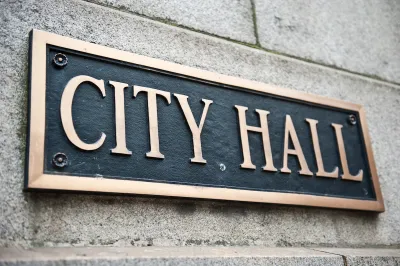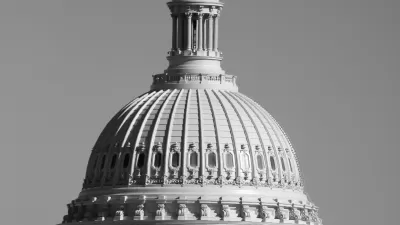Trump’s approach to policies like NYC’s congestion pricing isn’t just irrational and wasteful — it defies the tenets of conservatism. But there are ways to reframe the issues.

During my three decades as a planning consultant, I have worked with stakeholders ranging from conservative to liberal. Traditional conservative politicians took their civic responsibilities seriously; they tended to be courteous and thoughtful, and demanded detailed policy analysis. Regardless of whether you agreed with their priorities, you had to respect their principles. Conservative, after all, literally means caution and efficiency, as in less risky investments and more efficient resource consumption.
President Donald Trump’s opportunistic populism is the opposite. During his first two months in office, Trump imposed countless careless and wasteful policies. Some, such as firing and then unfiring nuclear experts and Federal Aviation Administration employees, and giving billionaire Elon Musk immense but unclear powers, are dangerous and irresponsible. Others, such as cutting energy efficiency programs, are foolish and costly.
How should rational people respond? My recent report Responsive Planning in Ideologically Conservative Communities provides practical guidance for working with conservative stakeholders. It describes traditional conservative principles and how they can be applied in public decision-making. By understanding these concepts, practitioners can reframe issues in ways that resonate with conservatives, point out inconsistency and hypocrisy, build ideological bridges, and redirect opponents’ energy back at them.
This suggests that for the next four years, policy debates will be less between conservatives and liberals and more between irrational populist policies and responsible, evidence-based policies that bridge ideologies. Success depends on framing policies in terms of different groups’ priorities. I recommend studying conservative principles and using them to challenge foolish and unfair policies. It might not change the minds of populist followers, but it may cause true conservatives to reconsider their support for Trump’s contradictory positions.
FULL STORY: Can Progressive Planners Appeal to Conservative Principles?

Alabama: Trump Terminates Settlements for Black Communities Harmed By Raw Sewage
Trump deemed the landmark civil rights agreement “illegal DEI and environmental justice policy.”

Study: Maui’s Plan to Convert Vacation Rentals to Long-Term Housing Could Cause Nearly $1 Billion Economic Loss
The plan would reduce visitor accommodation by 25% resulting in 1,900 jobs lost.

Planetizen Federal Action Tracker
A weekly monitor of how Trump’s orders and actions are impacting planners and planning in America.

Wind Energy on the Rise Despite Federal Policy Reversal
The Trump administration is revoking federal support for renewable energy, but demand for new projects continues unabated.

Passengers Flock to Caltrain After Electrification
The new electric trains are running faster and more reliably, leading to strong ridership growth on the Bay Area rail system.

Texas Churches Rally Behind ‘Yes in God’s Back Yard’ Legislation
Religious leaders want the state to reduce zoning regulations to streamline leasing church-owned land to housing developers.
Urban Design for Planners 1: Software Tools
This six-course series explores essential urban design concepts using open source software and equips planners with the tools they need to participate fully in the urban design process.
Planning for Universal Design
Learn the tools for implementing Universal Design in planning regulations.
Caltrans
Smith Gee Studio
Institute for Housing and Urban Development Studies (IHS)
City of Grandview
Harvard GSD Executive Education
Toledo-Lucas County Plan Commissions
Salt Lake City
NYU Wagner Graduate School of Public Service





























